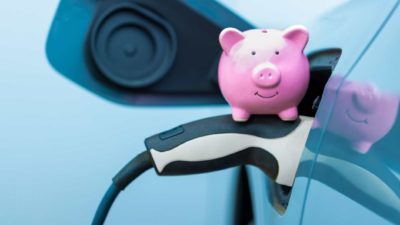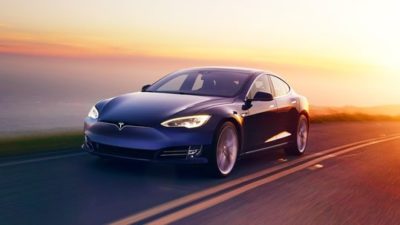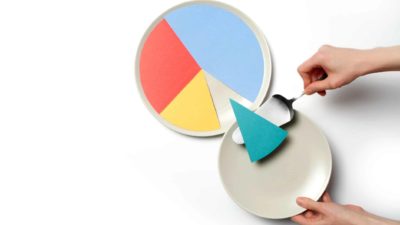This article was originally published on Fool.com. All figures quoted in US dollars unless otherwise stated.
Big tech is getting even bigger.
The FAANG group of stocks crushed earnings across the board this quarter, showing that dominant tech companies are only getting stronger as the economy revs up into the post-COVID era.
All of these giants posted results that were much better than analyst estimates (although Netflix missed expectations on a key subscriber growth metric). The chart below shows how their earnings-per-share (EPS) results compared with expectations.
| Company | EPS Result | EPS Estimate | Surprise |
|---|---|---|---|
| Facebook (NASDAQ: FB) | $3.30 | $2.37 | 39% |
| Apple (NASDAQ: AAPL) | $1.40 | $0.99 | 41% |
| Amazon (NASDAQ: AMZN) | $15.79 | $9.54 | 66% |
| Netflix (NASDAQ: NFLX) | $3.75 | $2.97 | 26% |
| Alphabet (NASDAQ: GOOGL) (NASDAQ: GOOG) | $26.29 | $15.82 | 66% |
Source: Yahoo! Finance.
It's remarkable that companies as big as this quintet, which together make up more than $6.73 trillion in market value, were able to beat Wall Street expectations by so much. The chart above represents more than $10 billion in unexpected profits in just a single quarter. That's more than all but a handful of companies make in a year.
The results show that these companies are stronger than ever, but they're actually even more profitable than they look.
Get to know GAAP
All of the FAANG stocks report earnings according to generally accepted accounting principles (GAAP), which is required by the SEC. All companies report GAAP results, but most other publicly traded companies provide an additional adjusted profits figure, which becomes the benchmark for the stock. FAANG stocks don't do this. Their profits are based on GAAP and include expenses like share-based compensation that other companies make disappear by instead emphasizing measurements like adjusted EPS or EBITDA.
To get an idea of how profitable the FAANG group is, compare them to the next wave of tech stocks that have gained fanfare recently.
Tesla (NASDAQ: TSLA), the fast-growing leader in electric vehicles, reported $438 million in GAAP profits, or $0.39 per share in its first quarter, and $1.05 billion in non-GAAP profits, or $0.93 per share. Adjusted EBITDA was even higher at $1.84 billion. There's a significant difference between the three profitability marks Tesla gives. $614 million in share-based compensation accounts for the difference in between GAAP and non-GAAP earnings, which more than doubles Tesla's profits.
Shopify (NYSE: SHOP) is another high-growth stock that has dazzled investors with its surging revenue and returns. In its first quarter, it reported adjusted operating income of $210.8 million, nearly double the GAAP figure as it backed out share-based compensation, related payroll taxes, and amortization of intangibles.
Other examples abound. Uber (NYSE: UBER) is the leading global ride-sharing company and a threat to disrupt transportation in multiple ways, but the historically loss-making company has only promised to be profitable on an adjusted EBITDA basis by the end of this year. Snapchat parent Snap (NYSE: SNAP) may be one of the most profligate spenders on share-based compensation. In its first quarter, it reported a GAAP loss of $286 million but finished with a $2.5 million non-GAAP profit when not factoring in $237 million in share-based compensation and other expenses. The company has acknowledged that it needs to rein in share-based comp as it is steadily diluting shareholders, with shares outstanding up 3% last year.
What it means for investors
There's nothing wrong with reporting adjusted earnings per share or using share-based compensation, and there are plenty of good reasons to invest in stocks like Shopify and Snap that are growing fast and have disruptive potential. However, their use of adjusted earnings shows that investors aren't making apples-to-apples comparisons when they compare them with FAANG stocks.
Apple posted GAAP net income of $23.6 billion in its quarter but also had $4 billion in share-based compensation. If it were adjusting its profits, they would be nearly 20% higher.
The tech giants don't need to do that, though. They are already delivering monster profits, and they may be purposely avoiding padding their figures because of antitrust concerns. They don't want to look even more powerful than they are.
But powerful companies are good for investors, and all four of these businesses dominate their respective subsectors. Unless something changes on the regulatory front, these FAANG stocks will continue to spin off tons of cash, and they all look like great bets to continue beating the market.
This article was originally published on Fool.com. All figures quoted in US dollars unless otherwise stated.









